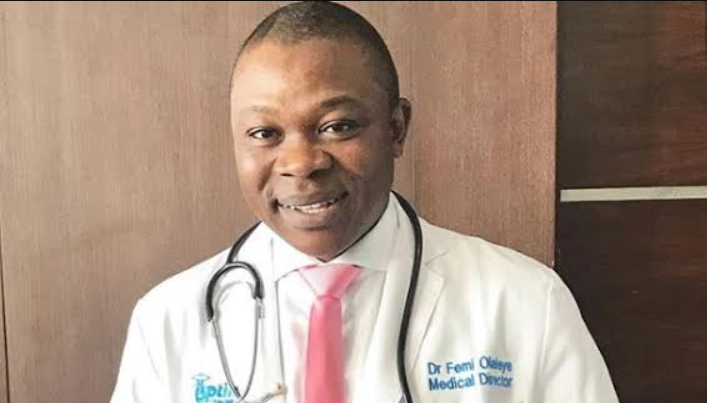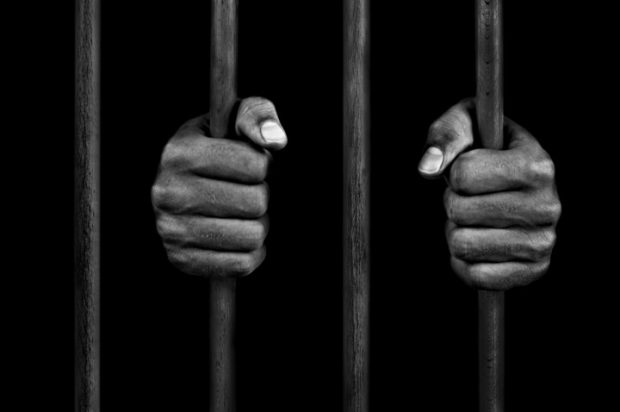A standard-gauge rail being planned from Kano State in Nigeria to Maradi in the Niger Republic is one of the projects the President, Major General Muhammadu Buhari (retd.), plans to fund with the fresh external loans he is asking the National Assembly to approve for his regime, The PUNCH is reporting.
Buhari had asked the National Assembly to approve fresh external loans of $4.054bn and €710m ($839m) for his regime.
He also sought the legislature’s approval for grant components of $125m in the 2018-2020 external rolling borrowing plan.
These were contained in a letter addressed to both chambers of the National Assembly and read on the floor at the resumption of plenary by the presiding officers Messrs Ahmad Lawan and Femi Gbajabiamila (Senate President and Speaker of House of Representatives respectively) on Tuesday.
Buhari, in the letter, dated August 24, 2021, explained that the projects listed in the 2018-2021 Federal Government Borrowing Plan would be financed through sovereign loans from the World Bank, French Development Agency, EXIM Bank International Fund for Agricultural Development, Credit Suisse Group and Standard Chattered/China Export and Credit in the total sum of $4,054,476,863 and €710m (839m) and grant components of $125m.
According to the President, a summary of some key projects in each of the six geopolitical zones that will be funded by the loans and a summary on the expected impacts on the socio-economic development of each of the six geopolitical zones were attached to the letter.
According to the breakdown obtained exclusively by one of our correspondents from the Ministry of Finance, Budget, and National Planning, five international bodies will jointly provide the $4,054,476,863 component of the loan.
They include the World Bank -$3,250,000,000; China Exim Bank -$225,120,000; IFAD- $50,000,000; European ECA/KfW/IPEX/APC -$190,255,276; Bank of China -$276,981,587; and Standard Chartered Bank/China Export and Credit (SINOSURE) -$62,120,000.
The Euro component of €710m will be provided by AFD -€210,000,00 and Credit Sussie Group €500,000,000 while the World Bank will provide the grant components of $125m.
According to the document, the $190,255,276 to be provided by European ECA/KfW/IPEX/APC will be spent on Nigeria to Niger Republic rail line.
The document gave the project title as “Kano-Maradi SGR with a branch to Dutse” and identified the implementing MDA as the Federal Ministry of Transportation.
“Financing cost which the lender requested to be capitalized” was written under the column for a multilateral institution.
On the expected impact of the project on the geopolitical development, the Federal Government wrote, “The project is to link Nigeria with the Niger Republic from Kano-Katsina-Daura-Jibiya-Maradi with a branch to Dutse.
“It is part of the Trans-Africa Railway System and it is expected to improve the international trade between Nigeria, Niger, and other North-Africa countries.”
Also, the $225,120,000 to be provided by China Exim Bank is expected to be spent on the Lagos-Ibadan Railway Modernisation Project.
It is meant to cater to the construction of the branch line (Apapa-Tin Can Island Port) project.
On the impact of the project, the Federal Government said, “The project is to provide an alignment of routes from the Apapa Port Terminal to Tin Can Island Port and to enhance the economic activities at the Apapa and tin Can Island Ports.”
The $50,000,000 to be provided by IFAD will be spent on what the government called Value Chain Development Programme -Additional Financing II.
It identified the implementing states as Anambra, Benue, Ebonyi, Niger, Ogun, Taraba, Nasarawa, Enugu, and Kogi while the geo-political zones were listed as North Central, North East, South West, and South East.
The expected impact, according to the government, is “to support a measurable increase in the programme’s outreach to 100,000 farmers, including over 6,000 and 3,000 processors and traders respectively.
“It will also support the mainstreaming of issues that were not considered at the stage of programme design.”
The €210,000,000 to be provided by AFD will be spent on two projects -National Digital Identity Management Project (co-financed with the World Bank, AFD and EIB) -€100,000,000; and the Kaduna Bus Rapid Transport Project –€110,000,000.
The Bank of China’s $276,981,587 will be spent on the establishment of three power renewable energy projects; Credit Sussie Group’s €500,000,000 will be spent on sovereign guarantee for the issuance of Euro bond as collateral to enable Bank of Industry fund its projects; while the -$62,120,000 to be provided by Standard Chartered Bank/China Export and Credit (SINOSURE) will be used to provide 17MW hybrid solar power infrastructure for the National Assembly complex.
World Bank’s $3,250,000,000 will be spent on seven projects.
Part of Buhari’s letter to the National Assembly had read, “I write on the above subject and submit the attached addendum to the proposed 2018-2020 external rolling borrowing plan for the consideration and concurrent approval of the senate for the same to become effective.
“The distinguished Senate President may recall that I submitted a request on the 2018-2020 borrowing plan for the approval of the senate in May 2021.
“However, in view of other emerging needs and to ensure that all critical projects approved by Federal Executive Council as of June 2021 are incorporated, I hereby forward an addendum to the proposed borrowing plan.
“The projects listed in the external borrowing plan are to be financed through sovereign loans from the World Bank, French Development Agency, EXIM Bank, and IFAD in the total sum of $4,054,476,863 and €710m and grant components of $125m.
“A summary of some key projects in each of the six geopolitical zones and a summary on the expected impacts on the socio-economic development of each of the six geopolitical zones are attached herewith as Annex II and III.”

 BIG STORY5 days ago
BIG STORY5 days ago
 BIG STORY4 days ago
BIG STORY4 days ago
 BIG STORY4 days ago
BIG STORY4 days ago
 BIG STORY5 days ago
BIG STORY5 days ago
 BIG STORY2 days ago
BIG STORY2 days ago
 BIG STORY4 days ago
BIG STORY4 days ago
 BIG STORY4 days ago
BIG STORY4 days ago
 BIG STORY3 days ago
BIG STORY3 days ago
























